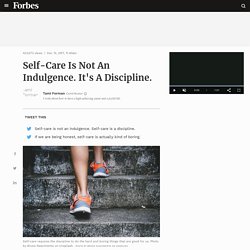

50 Questions To Ask Your Kids Instead Of Asking “How Was Your Day” – Her View From Home. Now that we have a new baby in our home, time with my oldest girls (ages 8 and 6) is even more difficult to find.

Between constant nursing sessions and shuffling kids to and from activities, it’s been an adjustment. To say the least. So I asked our writers to share some of their favorite conversation starters with their kids. These are especially great after a long school day when your babies don’t want to chat. (You may also want to check out – Not Just Bedtime Prayers: 70 Faith-Focused Questions To Ask Your Kids Each Day.)
Here’s some of their favorites! What made you smile today? HUGE thanks to our writers for their awesome questions. I started asking these 4 questions to my kids each night and it has made all the difference. Here’s hoping these help start conversations in your home too! TheEarlyCatastrophe. Une bonne résolution : changer le monde en commençant par ses chaussettes. Sylvestre Vernier est professeur en lycée agricole.

Et si la transition commençait par une paire de chaussettes ? Des chaussettes que l’on met tous les jours, des chaussettes qui vivent souvent cachées mais qui sont pour autant outils de jugement d’une personnalité lorsqu’elles se montrent, des chaussettes qui ne vont évidemment que par paire et qui se jettent lorsque l’une a un trou, des chaussettes qui doivent se faire discrètes ou parfois au contraire être à l’effigie d’une marque célèbre pour que l’individu existe ou se fasse oublier, des chaussettes qui peuvent être faites en Chine et en coton non écologique ou au contraire fabriquées en France, en chanvre, en lin, en coton bio ou même en bois de hêtre.
J’ai donc proposé à mes étudiants de jouer à un petit jeu et de venir en classe avec deux chaussettes différentes, bios de préférence. Face à l’image des autres camarades ou aux autres enseignants, ils l’ont fait, au départ sans trop savoir pourquoi. Smell sensitivity varies with circadian rhythm. It has always been apparent that some individuals have a better sense of smell than others, but a new study of 37 teens provides the first direct evidence that within each person, smell sensitivity varies over the course of each day.

The pattern, according to the data, tracks with the body's internal day-night cycle, or circadian rhythm. "This finding is very important for olfactory perception science," said Rachel Herz, lead author of the study in Chemical Senses and an adjunct assistant professor of psychiatry and human behavior at the Warren Alpert Medical School of Brown University. "This hadn't been known before and this is the first clear, direct evidence. " As one of the five senses, smell is an important ability, Herz noted, not only for experiencing and enjoying the world, but also for receiving information about danger, such as nearby fire or spoiled food, and for basic functions like eating. Changes in the sense during the day can affect all these capabilities. 28-hour 'days'
Kriya. Sadhana. Zazen. Self-Care Is Not An Indulgence. It's A Discipline. Self-care requires the discipline to do the hard and boring things that are good for us.

Photo by Bruno Nascimento on Unsplash.Photo by Bruno Nascimento on Unsplash The way self-care is portrayed today is completely and utterly backward. First, self-care as a concept is almost exclusively aimed at women (generally wealthy white women who can afford the goods and services that get marketed to them as self-care). The not-so-subtle suggestion is that women need to be reminded to care for themselves because, after all, they are so busy taking care of everyone else. And the even less-subtle suggestion is that while we should be taking care of ourselves, that doesn’t absolve us from taking care of everyone else.
Which brings me to the second way that the current portrayal of self-care is backward -- it’s characterized as an indulgence. Self-care is not an indulgence. Agency. Emergence. Divergence. Naturalists. Perturbations. Yoganini. Réflexions sur l'humain.